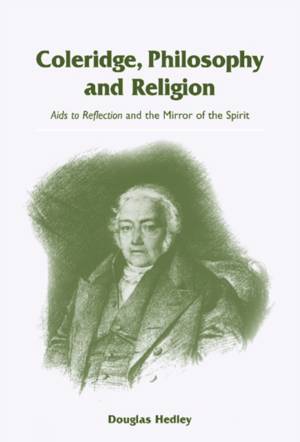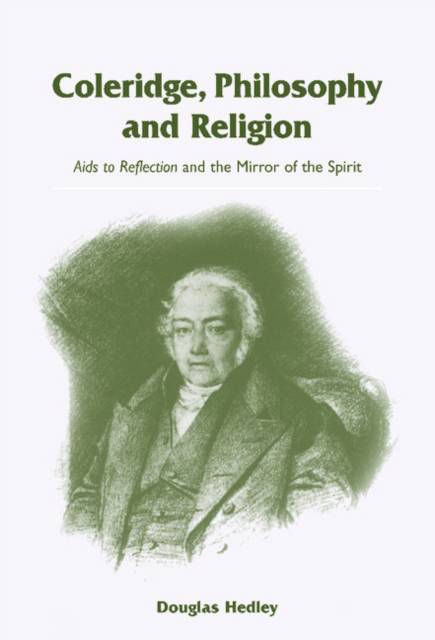
- Afhalen na 1 uur in een winkel met voorraad
- Gratis thuislevering in België vanaf € 30
- Ruim aanbod met 7 miljoen producten
- Afhalen na 1 uur in een winkel met voorraad
- Gratis thuislevering in België vanaf € 30
- Ruim aanbod met 7 miljoen producten
Zoeken
Coleridge, Philosophy and Religion
AIDS to Reflection and the Mirror of the Spirit
Douglas Hedley
Hardcover | Engels
€ 106,95
+ 213 punten
Uitvoering
Omschrijving
Coleridge's relation to his German contemporaries constitutes the toughest problem in assessing his standing as a thinker. For the last half-century this relationship has been described, ultimately, as parasitic. As a result, Coleridge's contribution to religious thought has been seen primarily in terms of his poetic genius. This book revives and deepens the evaluation of Coleridge as a philosophical theologian in his own right. Coleridge had a critical and creative relation to, and kinship with, German Idealism. Moreover, the principal impulse behind his engagement with that philosophy is traced to the more immediate context of English Unitarian-Trinitarian controversy of the eighteenth and nineteenth centuries. The book re-establishes Coleridge as a philosopher of religion and as a vital source for contemporary theological reflection.
Specificaties
Betrokkenen
- Auteur(s):
- Uitgeverij:
Inhoud
- Aantal bladzijden:
- 346
- Taal:
- Engels
Eigenschappen
- Productcode (EAN):
- 9780521770354
- Verschijningsdatum:
- 24/07/2000
- Uitvoering:
- Hardcover
- Formaat:
- Genaaid
- Afmetingen:
- 160 mm x 235 mm
- Gewicht:
- 603 g

Alleen bij Standaard Boekhandel
+ 213 punten op je klantenkaart van Standaard Boekhandel
Beoordelingen
We publiceren alleen reviews die voldoen aan de voorwaarden voor reviews. Bekijk onze voorwaarden voor reviews.











